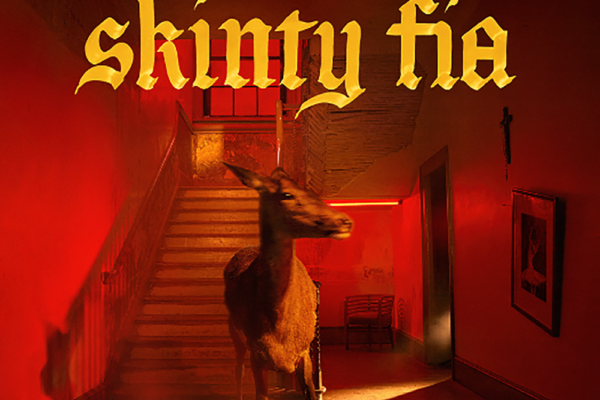It’s strange how some things can change so drastically yet still retain their core characteristics. More often than not, artists seek to grow and expand their sound as they progress; however, in doing so, they tend to abandon many of their defining attributes—resulting in a loss of identity. Still, regardless of how hard growth and change can be to infuse evenly, it is absolutely necessary. This is something Michigan’s genre-gypsies La Dispute not only understand, but also make look easy with their third full length, Rooms of the House.
Whether it’s due to the comfort of a self-release via their own ‘Better Living’ label, or the writing process itself—which saw the band lock themselves in a cabin in Northern Michigan—La Dispute have returned with what may be their strongest and most sincere entry yet. Instead of trading in their patented post-hardcore/indie/screamo sound, the quintet hone their back catalogue with a fresh perspective to create an album that’s more refined, more focused, and above all, more potent. While that may seem a tad hyperbolic, it’s well deserved as Rooms bolsters a precision that’s been present on past releases, but in much sparser amounts.
Now don’t get me wrong; the band has always put fourth thoughtful and engaging work, all of which has improved from album to album. However, on Rooms, this thoughtfulness feels more authentic, as if the band has grown their sound to a more final form. Where La Dispute may have once seemed to be cut from the same stone as artists like mewithoutYou and Thursday, Rooms strains these comparisons, allowing La Dispute to truly come into their own.
Throughout the album, the band introduces new approaches to their songwriting.
Tracks like “Woman (in mirror),” Woman (reading),” and “Objects in Space” offer more tender moments with more beat-centric drumming, clean, canorous guitars, guiding bass, and soft explorative vocals and lyricism. Opposite these tracks are “35,” “Hundsonville MI 1956,” and “Stay Happy There,” which defer to the band’s trademark angsty-aggression wound with a heavy emotional core. However, even though they feel familiar, these tracks are still noticeably different.
Structure and arrangement are managed better; therefore, songs not only play better, but also unfold into one another more seamlessly. La Dispute also splice new elements into their portfolio, too. “First Reactions After Falling Through the Ice” and “Extraordinary Dinner Party” may sound familiar on first listen, however, both make use of other new outer-genre tropes to fresh dimensions. Additionally, “For Mayor in Splitsville” sees the most different approach in which the quintet tackle standard verse-chorus rock-type structures and subdued vocals to a mostly successful end. Still, buried under these new dimensions though is the familiar tension and analytical lyricism listeners have come to know and expect.
Instrumentation really steps up on Rooms, too. Guitarists Chad Sterenberg and Kevin Whittemore have never suited one another better. The pair compliments each other perfectly, playing off of one another methodically. Bassist Adam Vass and drummer Brad Vander Lugt have always been tightly synced, but here their symbiosis is top-notch. Lastly, vocalist Jordan Dreyer expands his vocal range, talking and crooning as much as screaming and yelling, to match his vocabulary.
Aside from growth, the other shining attribute of Rooms of the House is how the band uses themes so completely and holistically. Instrumentally, the album flows very well. Lyrically, themes and subjects are invested in inanimate, every day items and locations, which makes Dreyer’s words all the more potent. It’s clear Dreyer has a lot to say; however, instead of repeating himself, he brings out these ideas in unique and accessible ways. For example, “Stay Happy There” paints a number of landscapes and environments that connect and carry similar themes further along.
Overall, Rooms of the House is explorative while still being compact. This is due to the band’s increased ability to edit and refine songs, making every part feel essential to the whole. Though their past releases have been insightful and thoughtful too, they were a bit more dense and harder to navigate. As such, Rooms stands as a superior album showcasing a band that embraces evolution as much as their back catalogue. Though the band might be hard pressed to top this album, it’ll definitely be enjoyable watching them try.
Article by Michael Ventimiglia




